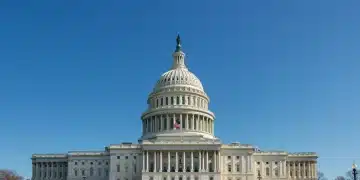UK strikes 2025: What to expect in the coming years

Anúncios
UK strikes are driven by economic pressures, heightened awareness of workers’ rights, political changes, and the importance of public support, all of which shape the future of labor relations.
UK strikes 2025 are on the horizon, and the implications could be significant for workers and employers alike. What trends are emerging, and how might they impact the workforce? Let’s dive into the details.
Anúncios
Key factors driving UK strikes in 2025
The upcoming UK strikes in 2025 are influenced by several key factors that shape the workforce and labor dynamics. As we delve into these factors, it becomes clear that understanding them is essential for both employers and employees.
Economic Pressures
One significant factor is the increasing economic pressure on workers. Rising inflation and the cost of living have left many feeling squeezed. As wages struggle to keep pace with these rising costs, workers are more likely to demand better compensation and conditions.
Anúncios
- Inflation impact on wages
- Higher living costs for families
- Demand for fair pay increases
Workers’ Rights Awareness
Another factor is the growing awareness of workers’ rights. Many employees are becoming more informed about their entitlements and protections. This awareness has led to a collective push for improved working conditions and fair treatment.
- Increase in union membership
- Public campaigns for rights
- Support from community organizations
The evolving nature of work also plays a vital role. With the rise of gig economies and remote work, many employees are now questioning the security of their positions. This uncertainty may drive them to strike for better job security.
Additionally, political environments can significantly affect strike actions. Changes in policies and government support for labor rights can either empower workers or lead to increased tensions between employees and employers. With shifting political landscapes in the UK, workers are closely monitoring potential impacts.
The combination of these elements paints a picture of a labor landscape poised for change. As UK strikes in 2025 approach, understanding these driving factors will be crucial for navigating the complexities of labor relations.
The role of workers’ rights in future strikes

The concept of workers’ rights is becoming increasingly important as we look toward future strikes. Understanding this role is crucial for both employers and employees. The push for better rights highlights the need for fair treatment in the workplace.
Legal Protections
Many workers are now more aware of their legal rights. Laws that protect employees against unfair treatment are essential for creating a safe work environment. Knowledge of these laws encourages workers to demand fair practices.
- Protection against discrimination
- Right to fair wages
- Safe working conditions
Union Advocacy
Unions play a significant role in advocating for workers’ rights. With stronger union presence, workers can band together to fight for their needs and negotiate better terms with employers. This collective action often leads to successful outcomes.
- Collective bargaining power
- Organizing strikes for better conditions
- Training workers on their rights
Furthermore, the shift in societal attitudes toward labor reform emphasizes a more empathetic approach to employees’ needs. As public opinion continues to support workers, companies may face pressure to improve conditions proactively.
With the future of labor in flux, understanding the evolving landscape of workers’ rights will be vital. This understanding not only empowers employees but also drives employers to create better workplaces.
How political changes could influence UK strikes
Political changes can significantly impact the landscape of UK strikes. Understanding how these shifts can shape labor actions is essential for employees and employers alike. As governmental policies evolve, so do the dynamics of worker relations.
Legislation Changes
New laws or amendments can either empower workers or restrict their rights. When the government enacts favorable labor laws, employees may feel more secure in their positions and more likely to voice their concerns.
- Increased minimum wage laws
- Protections against unfair dismissals
- Improved health and safety regulations
Political Climate
The overall political climate also plays a crucial role. A government that advocates for workers’ rights may encourage a more cooperative atmosphere between employees and employers. Conversely, a government that prioritizes business interests may lead to unrest.
Public sentiment and activism can further influence how politics interact with labor. When citizens rally behind workers, the government often feels the pressure to respond positively. This relationship between public opinion and political action can significantly affect the likelihood of strikes.
Moreover, upcoming elections can lead to uncertainty. Political parties may have different views on labor rights and economic policies. Employee anxiety about potential changes can lead to increased strike activity as workers seek to safeguard their rights.
Thus, the influence of political changes on UK strikes is multifaceted. Being aware of these dynamics helps prepare both workers and employers for future developments.
Economic implications of strikes in the UK

The economic implications of strikes in the UK are significant and can affect various sectors. Understanding these consequences helps both workers and employers prepare for potential disruptions.
Disruption of Services
Strikes can lead to the disruption of essential services. When key industries, such as transportation or healthcare, are affected, it can impact everyday life. These interruptions often have a ripple effect on the economy.
- Public transport delays
- Increased emergency room wait times
- Delivery service interruptions
Impact on Businesses
Businesses can face financial losses during strikes. Lost productivity and poor customer service can reduce revenue. When labor disputes become prolonged, the economic impact can extend beyond the striking employees.
Many companies may need to implement contingency plans or hire temporary workers, which can lead to increased costs. This approach may help mitigate immediate issues but can lead to longer-term financial strain.
Influence on the Economy
National statistics may show an increase in strike activity, impacting overall economic growth. High levels of industrial action can signal instability, which may scare off potential investors. This can slow down job creation and wage growth across various sectors.
On a broader scale, strikes often bring attention to key issues such as pay and working conditions. This focus can influence policy changes that, while beneficial in the long run, may initially create economic uncertainty.
Overall, the economic implications of strikes in the UK highlight the need for effective dialogue between employers and employees. Both parties must strive to address grievances to minimize disruptions and foster a healthier economic environment.
Lessons from previous strike actions
Analyzing lessons from previous strike actions can provide valuable insights for both workers and employers. Understanding what has worked and what has not informs future strategies and decisions.
Successful Negotiation Strategies
Many strikes have shown that clear communication is vital. When both parties engage in open dialogue, it often results in more successful negotiations. Ensuring that workers’ concerns are heard creates a foundation for trust.
- Active listening from management
- Regular updates on negotiations
- Involving neutral parties as mediators
The Importance of Solidarity
Previous strikes have highlighted the power of solidarity among workers. When workers stand united, they amplify their voices. Solidarity encourages participation and can mobilize more individuals to join the collective action.
Examples from the past show that larger numbers of participants can lead to stronger outcomes. This involvement can also attract public support, further enhancing the impact of the strike.
Understanding Public Sentiment
Public perception plays a critical role in strikes. Strikes that gain public sympathy often yield better results. Workers should consider public opinion when planning actions, aiming to highlight the significance of their cause.
Engaging with local communities and utilizing social media to spread their message can build this vital support base. Successful strikes have often leveraged public interest to their advantage, turning local sentiment into national awareness.
Lessons from previous strike actions remind us that preparation and adaptability are crucial. Each action offers unique insights that can help shape the future of labor relations.
In conclusion, understanding the factors behind UK strikes is essential for navigating the complex labor landscape. Political changes, economic implications, and the importance of workers’ rights play vital roles in shaping future actions. By learning from previous strikes, workers can better prepare for what lies ahead. Engaging with communities and fostering solidarity will be key to achieving fair outcomes. As we look to 2025 and beyond, remaining informed and united will be crucial for success in the ongoing fight for workers’ rights.
FAQ – Frequently Asked Questions about UK Strikes
What are the main factors driving UK strikes?
Key factors include economic pressures, workers’ rights awareness, political changes, and public sentiment.
How can political changes influence strike actions?
Political changes can impact labor laws, create instability, and either empower or restrict workers’ rights, affecting the likelihood of strikes.
What are the economic implications of strikes?
Strikes can disrupt services, lead to financial losses for businesses, and affect overall economic growth by signaling instability.
What lessons can be learned from previous strike actions?
Previous strikes highlight the importance of solidarity, effective communication, and understanding public sentiment to enhance the chances of successful negotiations.





